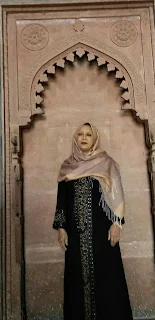 The human heart is the seat of all human
emotions. A heart that is full of evil emotions and thoughts is but a favourite
place for Satan. Satan takes residence in such a heart and uses it as a control
centre to deviate the servant of Allah from the right path. Those hearts that
are disbelieving, doubtful and mischief-mongering are, according to the Holy Quran,
hearts that have been sealed. Allah (swt) says in His book: 'Thus do We
seal the hearts of transgressors.' (Yunus 10: 75) and: 'I will instil terror into the hearts of those who
disbelieve.' (Al-Anfal 8: 13).
The human heart is the seat of all human
emotions. A heart that is full of evil emotions and thoughts is but a favourite
place for Satan. Satan takes residence in such a heart and uses it as a control
centre to deviate the servant of Allah from the right path. Those hearts that
are disbelieving, doubtful and mischief-mongering are, according to the Holy Quran,
hearts that have been sealed. Allah (swt) says in His book: 'Thus do We
seal the hearts of transgressors.' (Yunus 10: 75) and: 'I will instil terror into the hearts of those who
disbelieve.' (Al-Anfal 8: 13).
The Holy Quran makes many such references to
the human heart. The Book of Allah proclaims numerous merits of a sound heart,
a contended heart full of unbounded love and deep understanding of God and
mankind, His creation. For instance the Holy Quran proclaims: 'Verily, it is in the remembrance of Allah that hearts
can find comfort.' (Ar-Rad 13:
29).
And Allah admonishes all Muslims that: 'He joined your hearts in love (brotherhood/ friendship)' (Al-Imran 3: 104); and that He: 'put your hearts at rest.' (Al-Imran 3: 127).
Scientific research has conclusively proved
that there is a vital link between the state of one’s thinking and one’s
physical well-being. A healthy heart will undoubtedly keep a mind healthy and
vice versa. A person’s character is built on his thoughts, in other words, we
are what we think. Allah our merciful Lord through His benevolence has given us
the choice and power to govern our thoughts and thereby build a character that
is worthy of praise.




